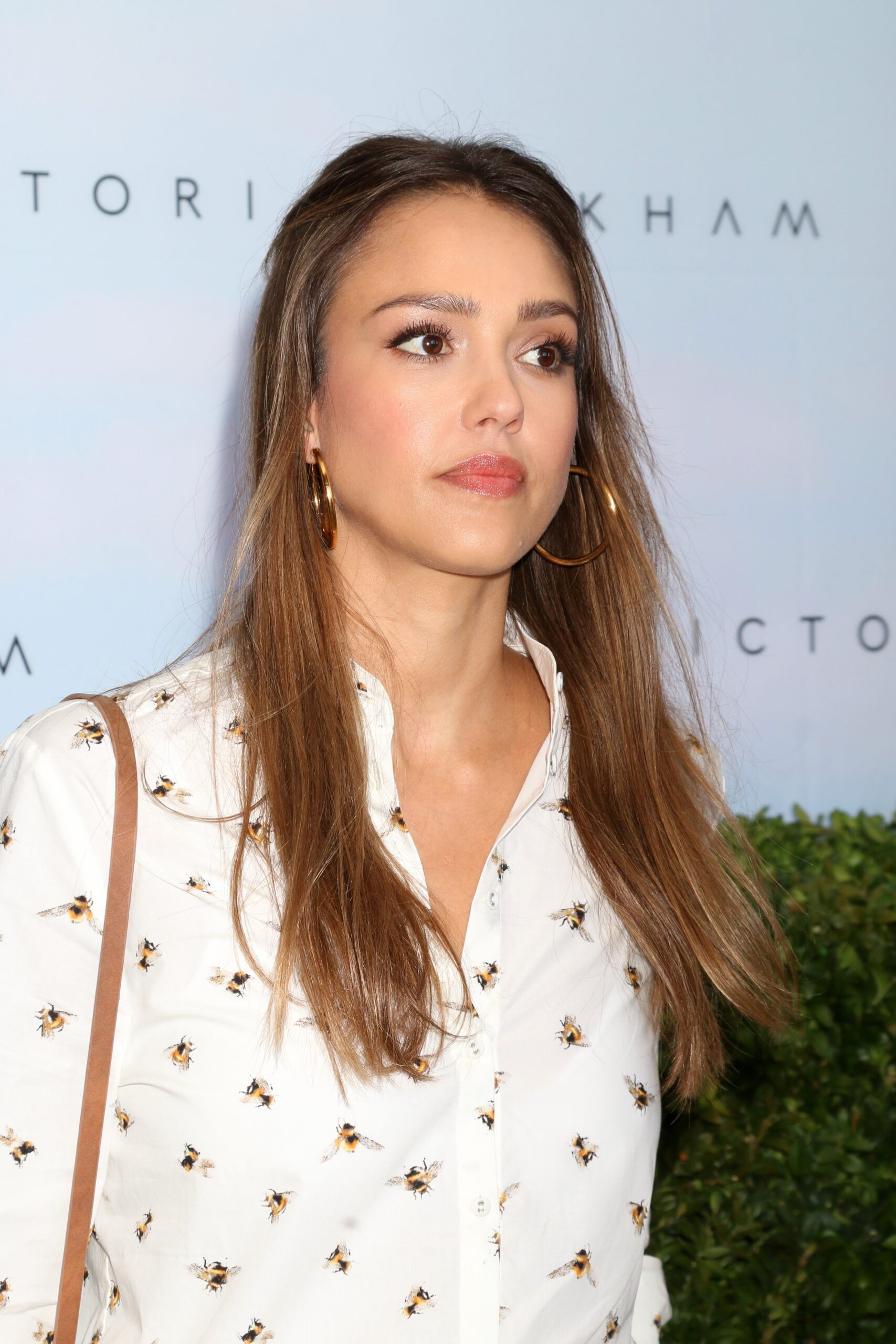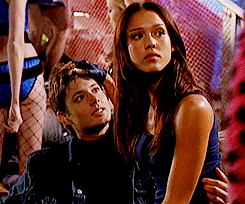Tv
Before Its Time: Jessica Alba and Jensen Ackles in James Cameron’s “Dark Angel”
12 Apr, 21

Jessica Alba
By Joe Seer (Shutterstock)
Back in 2000, Jessica Alba, Jensen Ackles, and Michael Weatherly starred in a James Cameron-helmed TV series about a dystopian cyberpunk future.
Yes, you heard that right. Chuck D of Public Enemy even composed the theme song with the group’s producer, Gary G-Wiz, and Cameron later praised the production as “the best experience [he] had working with other writers.” And yet, few people have ever heard of the series, so what happened?
In the golden age of strong, young, female heroes (Buffy the Vampire Slayer, Alias, Xena: Warrior Princess, and later Veronica Mars), Dark Angel debuted on Fox. Created by James Cameron and Charles H. Eglee, the series starred Jessica Alba in her breakout role: Max Guevara, a super soldier genetically engineered by Manticore, a secret government organization from which she escaped in her youth and has been evading capture by its agents ever since.
Bloggers and Hacktivism
Set in Seattle 2019, Max works as a bike messenger in a world where all technology has been knocked out by an electromagnetic “pulse” released by a group of terrorists. Cyberpunk gangs and anarchist criminal underworlds comprise one part of society, while her boyfriend, Logan (Michael Weatherly), is a “cyberjournalist” (remember this show was before YouTube or the blogging boom) and highly skilled hacker who still owns working technology thanks to the fact that his family invented Hover Drones. Under the pseudonym Eyes Online, he hacks into government propaganda newscasts to critique abuses and coverups.
Ironic Heroes in a Jaded World
Max was modeled after Alba herself, who was, in the early aughts, also a mysterious teenage girl who captured attention; but the character of Max was also part ingenue and part vigilante, her voice imbued with the sarcasm and jadedness of the early 2000s along with a hero’s optimism.
When she explains The Pulse, she says, “They used to say one nuclear bomb can ruin your whole day. It was sort of a joke, until the June morning those terrorist bozos whacked us with an electromagnetic pulse from 80 miles up. You always hear people yapping on how it was all different before the pulse. Land of milk and honey blah, blah, blah, blah with plenty of food and jobs and things that actually worked. I was too young to remember, so, whatever… The thing I don’t get is why they call it a depression. I mean, everybody’s broke… but they aren’t really all that depressed. Life goes on.”
As Max encounters other “Transgenics” — genetically modified escapees from Manticore — they begin to rely on each other to evade detection from the government agents hunting them down like animals. Her crew encompasses other enhanced humans like herself (called, X-3s, X-4s, or X-5s) along with human-animal hybrids (Island of Dr. Moreau-style) like her good half-canine friend Joshua (played by Kevin Durand of Lost and Ballers).
The group also includes Ben, a once idealistic and wholesome soul who dreamed of freedom outside the confines of the lab, but he turned into a serial killer when exposed to the cold nature of the world turned him into a serial killer. Ben was played by Jensen Ackles of current Supernatural fame, but he was such a fan favorite that he was invited back as a recurring smart-mouthed character in Season two: Alec, Ben’s clone, helps Max escape from Manticore when she’s temporarily recaptured and becomes a reluctant hero protecting other Transgenics.
Othering in American Society
Altogether, the show created a poignant allegory of how Othering and ostracism still dehumanize innocent people in modern society. Inevitably, the public finds out that Transgenics are living and working among them, resulting in public campaigns of hate speech and calls for violence. Even prior to that, Joshua is once hunted down by local authorities over a misunderstanding. As he’s depicted as a criminal and a monster in the press, Max and friends rush to find him before authorities do and provide him asylum (you know, like refugees, religious minorities, or any other ostracized group in modern day America).
Season two ended abruptly with all of the Transgenics being “outed,” and a widely televised police stand-off results in all of Seattle’s Transgenics barring themselves off in an abandoned part of the city, waving a flag of their own creation and demanding that they be treated with civility and granted human rights.

Dark Angel only aired for two seasons; unfortunately, between rumors of on-set strife among actors and the studio objectifying Alba and pressuring the 19-year-old to lose weight if she wanted to carry the show on her shoulders, the show faltered. It didn’t help that the pilot alone cost about $10 million (because it is a James Cameron creation, after all). But in the ensuing years, a cult-like following has arisen around the show–and for sound reason. During its run, Alba was even nominated for a Golden Globe for Best Performance by an Actress in a Television Series – Drama in 2001. After its disappointing cancelation (on a major cliffhanger, no less), the series found renewed life as a series of science fiction novels and a video game.
The TV series was largely inspired by Y2K paranoia – that moment of cultural panic brought on by a theory that the new millennia would trigger a “catastrophic breakdown of electricity and communications.”Compounded with Dark Angel‘s thematic questions of civic freedom, human nature, and thinly veiled struggles for immigration and trans rights, the series encapsulated the kind of political polarity, intolerance, and infringement upon civil liberties that sadly came to define the 2010s.
Today, we watch with a wary eye as Google and Amazon smart technology invades our homes, hologram concerts of our beloved late artists are on the rise, and climate change activism is being helmed by teenagers because older generations are too jaded to carry a torch of hope. Meanwhile, federal and state governments are scaling back women’s and LGBTQIA+ rights, and an immigration crisis has spread xenophobia and prejudice to push hate crimes to a record highs.
In an age that can constantly feel like the end times, a show dealing with the true dystopian future humans can create is more relatable than ever.
- Dark Angel – Official FOX Trailer – YouTube ›
- Jessica Alba evokes her Dark Angel character while arriving at LA … ›
- Petizione · Dark Angel Revival · Change.org ›
- Are We Ever Going to see a Dark Angel Reboot? | Dark angel tv … ›
- ‘Dark Angel’ Reunion 2021 — Is It Happening? – Mediamass ›
- 20 Crazy Details Behind The Making Of Dark Angel | ScreenRant ›
- Five short-lived series that deserve the reboot treatment ›













